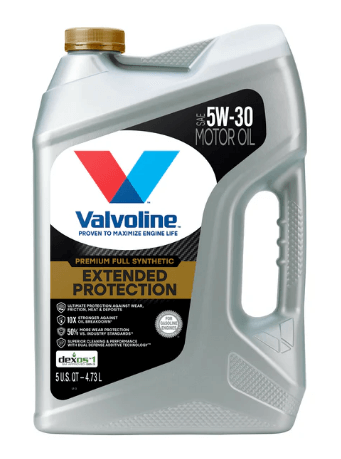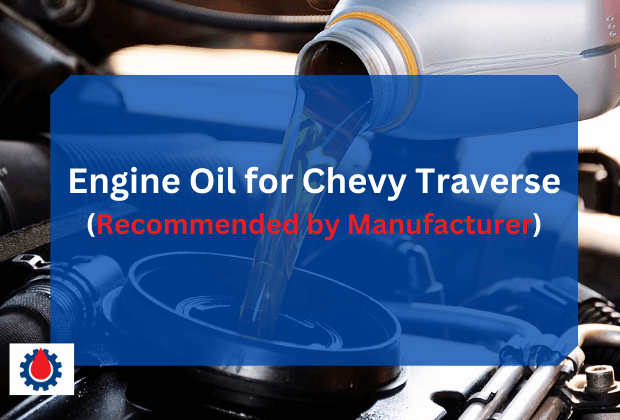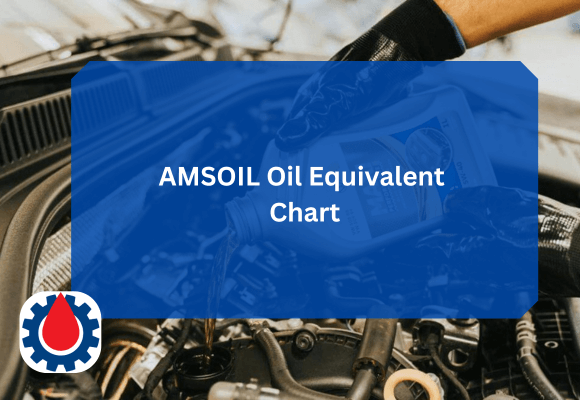Engine oil plays a pivotal role in reducing friction, managing heat, and preventing wear on critical engine components.
For Chevy Traverse owners, choosing the appropriate engine oil and understanding its maintenance can directly impact their vehicle’s health. This post will cover everything you need to know about selecting, maintaining, and optimizing engine oil for your Chevy Traverse.
Engine Oil for Chevy Traverse
The oil specification for Chevy Traverse models may vary slightly depending on the year. However, GM typically recommends a specific type for its engines:

- 5W-30: This is the most commonly recommended oil viscosity for Chevy Traverse models, as it provides optimal protection across a range of temperatures.
- 0W-20: For newer models, such as the 2020 Traverse with a 2.0L engine, 0W-20 is recommended. This oil is formulated for efficient fuel economy and performance in colder temperatures.
Choosing the Right Oil Brand for Your Chevy Traverse
Popular brands like Mobil 1, Castrol, Valvoline, and ACDelco (recommended by GM) produce high-quality oils suitable for Chevy Traverse models. Synthetic options from these brands are often compatible with the recommended specifications and are known for high performance and protection in varying conditions.
Read Oil For a 2018 Chevy Equinox(Recommended Oil By Manufacturer)
Types of Engine Oil: Conventional, Synthetic, and Blends
Understanding the different types of oil can help you make an informed decision.
- Conventional Oil: Derived from crude oil, conventional oil provides basic protection and is often cheaper. However, it breaks down more quickly under high temperatures and stress, so it may not be ideal for long intervals or extreme driving conditions.
- Synthetic Oil: Engineered for superior protection, synthetic oil resists breakdowns better and can last longer than conventional oil. It’s often recommended for Chevy Traverse owners who drive in extreme conditions or want extended performance between oil changes.
- Synthetic Blend: A mix of conventional and synthetic oils, these blends offer moderate protection and can be a cost-effective option for Chevy owners seeking better performance than conventional oil but at a lower price than full synthetics.
Oil Viscosity and Why It Matters
The viscosity rating (like 5W-30) is critical as it defines the oil’s performance under various temperatures. For a Chevy Traverse:
- “5W” refers to the oil’s viscosity at low temperatures (winter). The lower the number, the better the oil flows in cold weather.
- “30” indicates the oil’s viscosity at high temperatures (summer). Higher numbers are generally better for warmer climates, providing thicker protection at high operating temperatures.
Using the recommended viscosity prevents excess engine wear and enhances fuel efficiency. In colder climates, consider an oil with a lower “W” rating to ensure smoother startups.
Read Racing Engine Oil Viscosity(Learn the Viscosity Formula for Success)
How Often Should You Change the Oil in a Chevy Traverse?
For most Chevy Traverse models, the recommended oil change interval is every 7,500 miles or 12 months, whichever comes first. However, this may vary based on driving conditions:
- Normal Driving: Follow the manufacturer’s guidelines of 7,500 miles.
- Severe Conditions: If you frequently drive in dusty environments, extreme temperatures, or heavy stop-and-go traffic, consider changing the oil every 3,000 to 5,000 miles to prevent excessive buildup.
Check your Chevy’s manual for model-specific recommendations and the onboard oil life monitoring system for timely alerts.
Read Will an Oil Change Increase Gas Mileage(Experts Agree on This)
How to Check and Refill Engine Oil in a Chevy Traverse
- Prepare the Vehicle: Park on a level surface, turn off the engine, and let it cool for a few minutes.
- Locate the Dipstick: Open the hood and find the dipstick, typically marked with a bright handle.
- Check the Oil Level: Remove the dipstick, wipe it clean, reinsert, and remove again to read the level. The oil should fall within the safe markers.
- Refill if Necessary: If the oil level is low, unscrew the oil cap and add oil in small increments, checking the level frequently. Be careful not to overfill.
Maintaining a proper oil level prevents strain on the engine and optimizes performance. If oil levels are consistently dropping, check the vehicle for leaks or consumption issues.
Related Briggs Stratton Engine Oil Recommendations(By Manufacturer)
Signs You Need an Oil Change in a Chevy Traverse
Sometimes the onboard monitoring system may not catch specific signs of oil degradation. Look out for:
- Dark or Dirty Oil: Fresh oil is a clear amber color. If it appears dark or gritty, it’s time for a change.
- Unusual Engine Sounds: Knocking or ticking sounds can signal a lack of lubrication, often due to degraded oil.
- Decreased Fuel Efficiency: Thick, degraded oil causes the engine to work harder, consuming more fuel.
- Oil Warning Light: Always respond to dashboard indicators, as they are designed to alert you to low oil levels or issues.
Synthetic vs. Conventional Oil Costs: What’s Worth It?
While synthetic oils typically cost more upfront, they often last longer and provide better engine protection. For a Chevy Traverse, synthetic oil may be a good investment, especially for those driving in severe conditions. Over time, the increased longevity and protection may balance out the higher initial cost, reducing the need for frequent oil changes.
Tips for Extending Oil Life in a Chevy Traverse
- Regularly Check Oil Levels: Low levels can cause strain and degrade the oil faster.
- Use High-Quality Filters: The oil filter removes debris and contaminants. A quality filter prolongs oil life by keeping it cleaner.
- Maintain Cooling System: An overheating engine causes oil to break down faster. Keep the cooling system in optimal condition to preserve oil integrity.
- Follow Driving Best Practices: Avoid harsh acceleration, excessive idling, and overloading the vehicle.
Read Diesel Engine Oil Additives(Benefits & Top Oil Additives)
FAQ
Can I switch between synthetic and conventional oil?
Yes, but it’s often best to stick with one type to avoid inconsistent engine performance.
What if I use the wrong oil type?
Using the incorrect oil viscosity or type may reduce efficiency or cause long-term damage. Stick to GM recommendations.
Can I use high-mileage oil in a Chevy Traverse?
Yes, high-mileage oils are formulated for older engines and can help reduce oil consumption in models with over 75,000 miles.
How much oil does a Chevy Traverse need?
Most Chevy Traverse engines require about 6 quarts of oil, but check the owner’s manual to confirm for your model.
What’s the average cost for an oil change?
Oil change costs vary but typically range between $50 and $100 for synthetic oil at a shop.
Is it okay to go past the recommended oil change interval?
It’s not advisable. Delaying an oil change can lead to excessive engine wear and an increased risk of breakdown.
Read Engine Oil for Guns(Why Gun Owners Are Switching to Engine Oil)
Final word
Proper oil maintenance is key to keeping your Chevy Traverse performing at its best. By choosing the right type of oil, following the recommended intervals, and keeping an eye on oil levels, you can ensure that your engine remains well-protected, efficient, and reliable over time.




